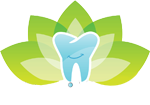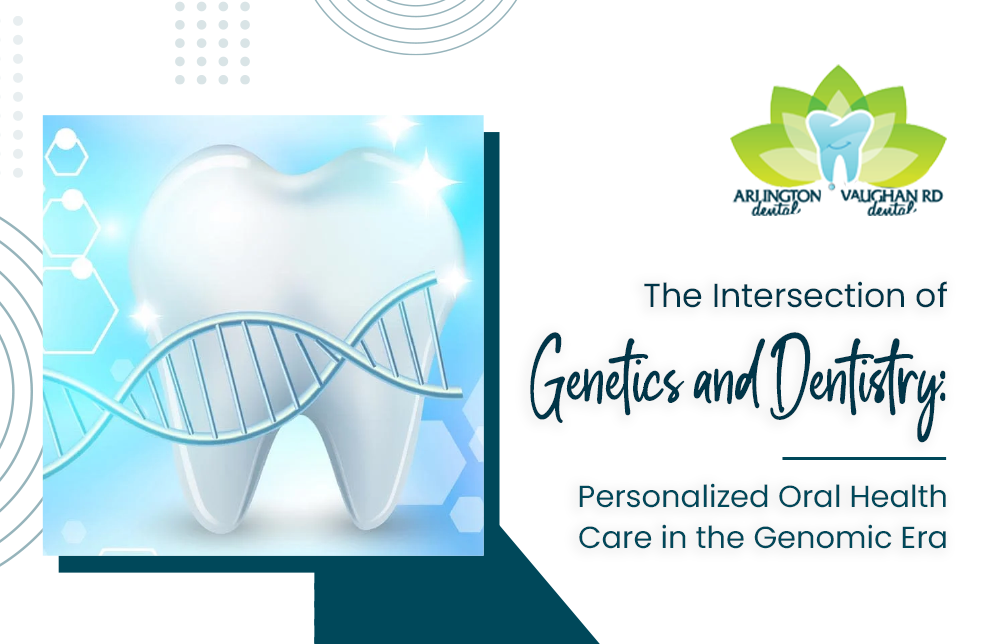The Intersection of Genetics and Dentistry: Personalized Oral Health Care in the Genomic Era
Introduction:
Advancements in genetic research and technology have opened new avenues for understanding the genetic basis of oral health and disease susceptibility. The emerging field of genomics in dentistry seeks to unravel the complex interplay between genetics, environmental factors, and oral health outcomes, paving the way for personalized preventive strategies and targeted treatments. Let's explore the implications of genetics on oral health care in the genomic era:
Genetic Risk Assessment and Predictive Testing:
Genetic risk assessment involves evaluating an individual's genetic predisposition to certain oral health conditions, such as periodontal diseases, dental caries, and oral cancers. By analyzing genetic markers and variations associated with increased susceptibility to specific diseases, dentists can identify individuals at higher risk and tailor preventive interventions accordingly.
Advances in genomic testing technologies, such as next-generation sequencing and single nucleotide polymorphism (SNP) analysis, enable comprehensive genetic profiling and risk stratification for oral health conditions. Predictive genetic testing empowers patients to make informed decisions about their oral health and adopt personalized preventive measures based on their genetic predispositions.
Precision Diagnosis and Treatment Planning:
Genomic insights offer opportunities for precision diagnosis and treatment planning in dentistry, allowing for more targeted and effective interventions tailored to individual patient profiles. Genetic testing can reveal underlying genetic factors influencing treatment responses, medication metabolism, and susceptibility to adverse drug reactions, informing treatment decisions and optimizing therapeutic outcomes.
For example, pharmacogenetic testing can identify genetic variations affecting drug metabolism enzymes involved in metabolizing medications commonly used in dentistry, such as local anesthetics and antibiotics. This information helps dentists customize medication regimens and dosage adjustments to maximize efficacy and minimize side effects for each patient.
Gene-Based Therapies and Regenerative Dentistry:
Genomics holds promise for the development of gene-based therapies and regenerative approaches in dentistry aimed at repairing and restoring damaged or diseased oral tissues. By targeting specific genes or genetic pathways implicated in oral diseases, researchers are exploring innovative strategies for gene therapy, gene editing, and stem cell-based regenerative therapies.
For instance, gene therapy techniques may involve delivering therapeutic genes or gene-editing tools directly to oral tissues to correct genetic mutations associated with inherited dental disorders or promote tissue regeneration. Similarly, stem cell-based approaches harness the regenerative potential of stem cells derived from dental pulp or other sources to regenerate damaged tissues and enhance wound healing in the oral cavity.
Gene-Environment Interactions and Oral Health:
Genomics research elucidates the complex interactions between genetic factors and environmental influences, such as diet, lifestyle habits, microbial exposures, and socio-economic determinants, in shaping oral health outcomes. Understanding these gene-environment interactions is crucial for developing comprehensive preventive strategies and targeted interventions to mitigate oral health disparities and promote health equity.
For example, genetic variations may modulate individual responses to environmental risk factors, such as dietary sugars or tobacco exposure, influencing susceptibility to dental caries or periodontal diseases. By incorporating genetic information into risk assessments, dentists can identify high-risk individuals and implement personalized preventive measures, such as dietary modifications or tailored oral hygiene regimens, to optimize oral health outcomes.
Ethical, Legal, and Social Implications (ELSI) of Genomic Dentistry:
As genomic technologies become increasingly integrated into dental practice, it is essential to consider the ethical, legal, and social implications (ELSI) surrounding genetic testing, data privacy, informed consent, and equity in access to genetic services. Dentists must navigate ethical dilemmas related to genetic counseling, patient autonomy, and the responsible use of genetic information in clinical decision-making.
Additionally, efforts to address health disparities and ensure equitable access to genetic testing and personalized oral health care are paramount. Dentists play a crucial role in promoting genetic literacy, facilitating informed decision-making, and fostering patient-centered approaches that respect individual preferences, values, and cultural beliefs.
Conclusion:
In conclusion, the intersection of genetics and dentistry heralds a new era of personalized oral health care, characterized by precision diagnostics, targeted therapies, and tailored preventive strategies. By leveraging genomic insights, dentists can optimize treatment outcomes, mitigate oral health risks, and empower patients to take proactive steps towards maintaining optimal oral health throughout their lives. As genomics continues to advance, its integration into dental practice holds immense promise for transforming the delivery of oral health care and improving patient outcomes.

